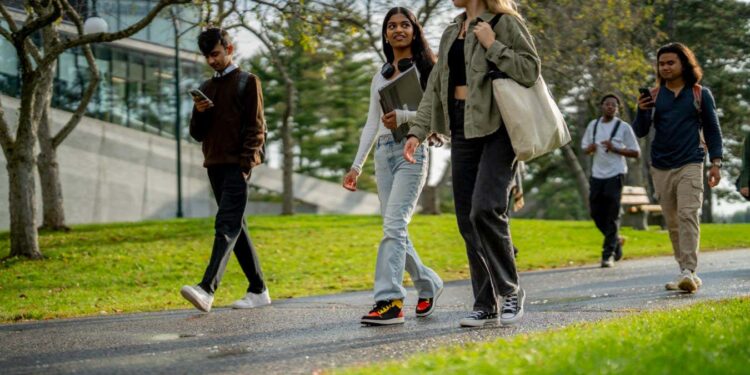
“Those who lack a sense of belonging are much more likely to experience impostor syndrome”
FatCamera/Getty Images
September is now upon us, and with it the new academic year. Like many students flying the family nest, one of my readers is anxious about her new life at university. She is the first in her family to attend higher education and is sure she will struggle to fit in.
Over the past 20 years, psychologists have come to recognise the many ways that someone’s sense of not belonging can damage their well-being. Fortunately, this research also offers some ways to mitigate those feelings – strategies that may benefit anyone experiencing impostor syndrome, or the fear we don’t deserve our success.
One of the first things to remember is that your emotions will fluctuate wildly. Studies show that those who lack a sense of belonging are much more likely to experience impostor syndrome. One day you are sure you have found your niche; the next, you feel adrift due to negative feedback that leaves you questioning your competence.
To capture this, psychologists ask people to rate statements like: “When something bad happens, I feel that maybe I don’t belong at this institution.” As you might expect, the sense of belonging tends to be more vulnerable to external influences in people from ethnic minorities, girls and women taking STEM subjects and first-generation students – and this has important consequences. People with these concerns can be less motivated and perform worse in exams. The increased stress can also take its toll on physical health, leading to more visits to the doctor.
Gregory Walton at Stanford University in California has pioneered research in this field, testing many strategies to bolster students’ sense of belonging. The interventions take the form of stories from past students who have described their anxieties and how they overcame them. Next, the participants write about their concerns and the strategies they use to feel more at home. The benefits can be seen in both the short and long term, enhancing grades and well-being for years.
As Walton explains in his recent book Ordinary Magic, we can all use these principles. A good first step is to identify an experience that left you questioning whether you belong in your community. You then explain to a listener why you feel like this, without judgement, before generating an alternative interpretation.
Suppose you feel you have been socially slighted, you may wonder whether it is the result of snobbery about your background. But it is equally possible that the person who slighted you was simply having a bad day, or perhaps they just have a terrible personality. Either way, their views don’t reflect those of everyone around you.
As your confidence increases, you can better engage with the community in question – until, hopefully, you wonder why you ever felt out of place.
David Robson is an award-winning science writer and author of The Laws of Connection: 13 social strategies that will transform your life
Besides describing the psychology of belonging, Gregory Walton’s book Ordinary Magic: The science of how we can achieve big change with small acts provides practical strategies for overcoming mental obstacles in our personal and professional lives.
For other projects visit newscientist.com/maker
Topics:
Source link : https://www.newscientist.com/article/mg26735621-000-if-you-feel-you-dont-really-belong-here-is-some-science-based-advice/?utm_campaign=RSS%7CNSNS&utm_source=NSNS&utm_medium=RSS&utm_content=home
Author :
Publish date : 2025-09-24 18:00:00
Copyright for syndicated content belongs to the linked Source.





